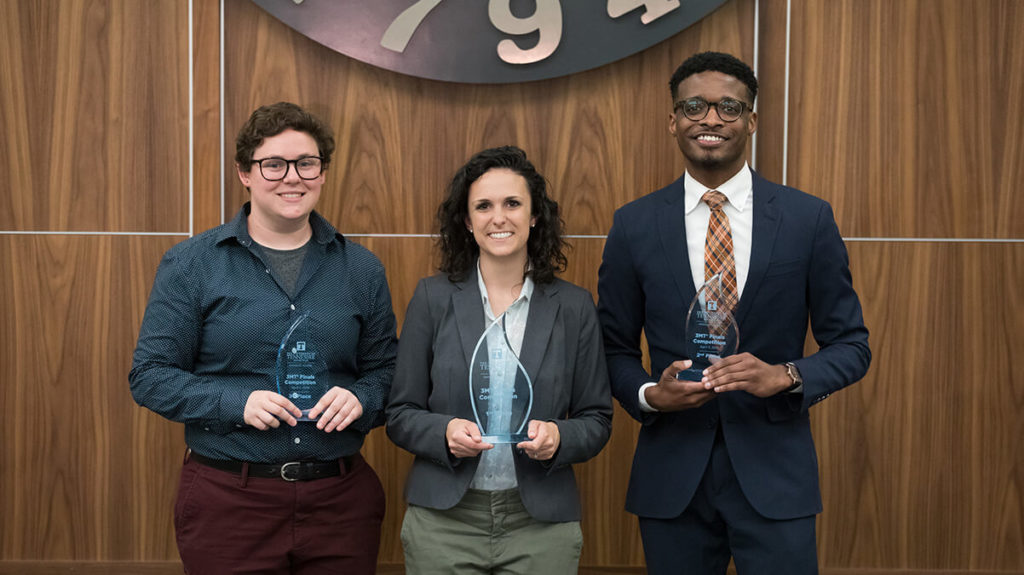A College of Law student who finished second in the University of Tennessee’s Three-Minute Thesis competition said his success can be attributed to one of his UT Law classes.
Jamarcus Bradford, a second-year law student, was drawn to the idea of participating in the competition – in which he placed second – after taking Professor Dwight Aarons’ Wrongful Convictions Seminar.
“When I read the email that was sent to everyone explaining the event, I instantly knew that I wanted to compete because I felt that it was necessary that individuals hear the flaws associated within our legal system,” Bradford said.
The Three-Minute Thesis competition challenges graduate students to present a compelling talk on the significance of their thesis or dissertation topic in just three minutes and using only one slide to convey their research. The university hosted preliminary rounds throughout the spring semester and narrowed the field of finalists to 12. Those finalists competed for the three top positions on April 3.
What Bradford learned in Aarons’ class was just how many cases of wrongful convictions exist and how frequently the problems are tied to criminal informants. That led Bradford to his competition topic: “Stop Snitching: The Flaws Embedded Within in the Informant Institution That Heavily Contribute to Wrongful Convictions.”
After graduation, Bradford plans to become a criminal defense attorney in Los Angeles, so working on a presentation about wrongful conviction has direct application to his future. He admits he was a bit surprised that others found the topic as compelling as he does.
“At the end of the competition, other competitors and audience members told me that they were happy to have heard my presentation because they had no clue that wrongful convictions were that frequent,” he said. “The fact that a wrongful conviction could literally happen to anyone, I felt the judges understood that and it made the topic become more personal for all of us.”
Bradford said the competition gave him opportunities to exercise his persuasive speaking skills.
Those skills “will definitely be needed in the future to successfully practice law as a criminal defense trial attorney,” he said.
